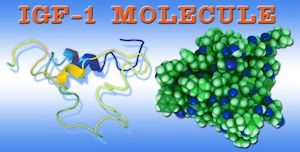Introduction to Secondary Hypogonadism
Secondary hypogonadism, a condition characterized by the inadequate production of testosterone due to dysfunctions in the hypothalamus or pituitary gland, has been increasingly recognized as a significant health concern among American men. This condition not only affects physical attributes such as muscle mass and libido but also has profound implications on mental health, particularly mood regulation.
The Link Between Testosterone and Mood
Testosterone, often dubbed the 'male hormone,' plays a crucial role in regulating various bodily functions, including mood. Research has consistently shown that testosterone levels are inversely related to symptoms of depression and anxiety. In men with secondary hypogonadism, the reduced levels of testosterone can lead to a cascade of neurochemical imbalances, affecting serotonin and dopamine pathways, which are vital for mood stabilization.
Clinical Observations and Studies
Numerous clinical studies have explored the relationship between secondary hypogonadism and mood disorders in American men. A notable study published in the *Journal of Clinical Endocrinology & Metabolism* found that men with secondary hypogonadism reported significantly higher rates of depressive symptoms compared to their counterparts with normal testosterone levels. Furthermore, a longitudinal study tracking middle-aged American men over a decade showed that those who developed secondary hypogonadism had a 2-3 fold increased risk of developing clinical depression.
Psychological Impact on American Men
The psychological impact of secondary hypogonadism on American men extends beyond mere statistics. Men often report feelings of irritability, low energy, and a pervasive sense of sadness, which can severely impair their quality of life. These symptoms can create a vicious cycle, where low mood leads to decreased social engagement and physical activity, further exacerbating the condition.
Treatment and Management
Addressing secondary hypogonadism involves a multifaceted approach. Hormone replacement therapy (HRT) is commonly used to restore testosterone levels to normal ranges, which can significantly improve mood and overall well-being. However, HRT must be carefully monitored due to potential side effects such as increased risk of cardiovascular issues. Additionally, psychological counseling and lifestyle modifications, including regular exercise and a balanced diet, are crucial components of managing the condition effectively.
Societal and Cultural Considerations
In American culture, where masculinity is often equated with strength and emotional resilience, the diagnosis of secondary hypogonadism can lead to feelings of inadequacy and stigma. It is essential for healthcare providers to address these concerns sensitively, ensuring that men feel supported and understood throughout their treatment journey. Education and awareness campaigns can play a pivotal role in destigmatizing the condition and encouraging men to seek help.
Conclusion
Secondary hypogonadism presents a significant challenge to the mental health of American men, with mood disturbances being a prominent feature. Understanding the intricate relationship between testosterone and mood can lead to better management strategies, improving the quality of life for those affected. As research continues to evolve, it is hoped that more effective and personalized treatment options will become available, offering hope and relief to the many American men grappling with this condition.
Contact Us For A Fast And Professional Response

- Secondary Hypogonadism: Cardiovascular Risks and Management Strategies for American Men [Last Updated On: March 5th, 2025] [Originally Added On: March 5th, 2025]
- Secondary Hypogonadism and Sleep: Impacts and Management Strategies for American Men [Last Updated On: March 17th, 2025] [Originally Added On: March 17th, 2025]
- Secondary Hypogonadism and Energy: Impact and Management in American Males [Last Updated On: March 18th, 2025] [Originally Added On: March 18th, 2025]
- Genetic Factors in Secondary Hypogonadism: Impact and Implications for American Males [Last Updated On: March 19th, 2025] [Originally Added On: March 19th, 2025]
- Secondary Hypogonadism in American Men: Symptoms, Risks, and Management Strategies [Last Updated On: March 19th, 2025] [Originally Added On: March 19th, 2025]
- Chronic Stress and Secondary Hypogonadism in American Males: A Comprehensive Overview [Last Updated On: March 20th, 2025] [Originally Added On: March 20th, 2025]
- Secondary Hypogonadism: Impacts on Body Composition in American Men [Last Updated On: March 20th, 2025] [Originally Added On: March 20th, 2025]
- Secondary Hypogonadism's Impact on Prostate Health: Management and Monitoring Strategies [Last Updated On: March 20th, 2025] [Originally Added On: March 20th, 2025]
- Secondary Hypogonadism: Impact on Cognitive Health and Management Strategies [Last Updated On: March 20th, 2025] [Originally Added On: March 20th, 2025]
- Exercise as a Key Strategy in Managing Secondary Hypogonadism in American Males [Last Updated On: March 21st, 2025] [Originally Added On: March 21st, 2025]
- Managing Secondary Hypogonadism: The Vital Role of Comprehensive Support Systems [Last Updated On: March 21st, 2025] [Originally Added On: March 21st, 2025]
- Psychological Impacts of Secondary Hypogonadism: Mood, Self-Esteem, and Cognitive Effects [Last Updated On: March 22nd, 2025] [Originally Added On: March 22nd, 2025]
- Secondary Hypogonadism in American Males: Impacts and Management of Hair Loss [Last Updated On: March 22nd, 2025] [Originally Added On: March 22nd, 2025]
- Environmental Factors and Preventive Measures for Secondary Hypogonadism in American Men [Last Updated On: March 22nd, 2025] [Originally Added On: March 22nd, 2025]
- Secondary Hypogonadism in American Males: Causes, Symptoms, and Management Strategies [Last Updated On: March 22nd, 2025] [Originally Added On: March 22nd, 2025]
- Secondary Hypogonadism: Impacts on Skin Health and Treatment Options in American Men [Last Updated On: March 23rd, 2025] [Originally Added On: March 23rd, 2025]
- Secondary Hypogonadism in American Males: Symptoms, Diagnosis, and Management Strategies [Last Updated On: March 23rd, 2025] [Originally Added On: March 23rd, 2025]
- Secondary Hypogonadism: Impact on Physical Performance in American Men [Last Updated On: March 23rd, 2025] [Originally Added On: March 23rd, 2025]
- Secondary Hypogonadism and Anemia: Understanding the Link and Managing Health [Last Updated On: March 24th, 2025] [Originally Added On: March 24th, 2025]
- Secondary Hypogonadism and Mood Disorders: Exploring Links and Treatment in American Men [Last Updated On: March 24th, 2025] [Originally Added On: March 24th, 2025]
- Secondary Hypogonadism in American Males: Impact and Importance of Mental Health Support [Last Updated On: March 24th, 2025] [Originally Added On: March 24th, 2025]
- Secondary Hypogonadism in American Men: Symptoms, Diagnosis, and Management Strategies [Last Updated On: March 24th, 2025] [Originally Added On: March 24th, 2025]
- Secondary Hypogonadism and Heart Disease: Risks, Symptoms, and Management in American Males [Last Updated On: March 24th, 2025] [Originally Added On: March 24th, 2025]
- Lifestyle Impact on Secondary Hypogonadism in American Males: Prevention and Management [Last Updated On: March 25th, 2025] [Originally Added On: March 25th, 2025]
- Secondary Hypogonadism: Understanding Its Profound Social Impact on American Men [Last Updated On: March 25th, 2025] [Originally Added On: March 25th, 2025]
- Secondary Hypogonadism: Impact on Libido and Treatment Options for American Males [Last Updated On: March 25th, 2025] [Originally Added On: March 25th, 2025]
- Secondary Hypogonadism and Diabetes: Insights and Management for American Men [Last Updated On: March 25th, 2025] [Originally Added On: March 25th, 2025]
- Secondary Hypogonadism: Impacts on Kidney Function and Management Strategies for American Males [Last Updated On: March 25th, 2025] [Originally Added On: March 25th, 2025]
- Sleep Disorders and Secondary Hypogonadism: Mechanisms, Impacts, and Management in American Men [Last Updated On: March 25th, 2025] [Originally Added On: March 25th, 2025]
- Secondary Hypogonadism's Impact on Muscle Strength in American Men: Diagnosis and Treatment [Last Updated On: March 25th, 2025] [Originally Added On: March 25th, 2025]
- Managing Secondary Hypogonadism: Symptoms, Diagnosis, and Treatment Strategies for American Males [Last Updated On: March 25th, 2025] [Originally Added On: March 25th, 2025]
- Exploring Alternatives to TRT for Secondary Hypogonadism Management [Last Updated On: March 25th, 2025] [Originally Added On: March 25th, 2025]
- Secondary Hypogonadism's Impact on Immune Function in American Men [Last Updated On: March 25th, 2025] [Originally Added On: March 25th, 2025]
- Emotional Impact of Secondary Hypogonadism on American Men: Symptoms and Solutions [Last Updated On: March 26th, 2025] [Originally Added On: March 26th, 2025]
- Understanding and Managing Secondary Hypogonadism in American Males [Last Updated On: March 26th, 2025] [Originally Added On: March 26th, 2025]
- Secondary Hypogonadism: Impacts and Management in American Men [Last Updated On: March 26th, 2025] [Originally Added On: March 26th, 2025]
- Exercise as a Key Strategy in Managing Secondary Hypogonadism in American Men [Last Updated On: March 26th, 2025] [Originally Added On: March 26th, 2025]
- Secondary Hypogonadism's Impact on Fat Distribution in American Men [Last Updated On: March 26th, 2025] [Originally Added On: March 26th, 2025]
- Understanding and Managing Secondary Hypogonadism in American Males: A Comprehensive Guide [Last Updated On: March 26th, 2025] [Originally Added On: March 26th, 2025]
- Secondary Hypogonadism's Impact on Bone Density in American Men: Causes, Effects, and Management [Last Updated On: March 26th, 2025] [Originally Added On: March 26th, 2025]
- Secondary Hypogonadism and Autoimmune Diseases: Insights and Implications for American Men [Last Updated On: March 26th, 2025] [Originally Added On: March 26th, 2025]
- Secondary Hypogonadism: Impacts and Management Strategies for American Men [Last Updated On: March 26th, 2025] [Originally Added On: March 26th, 2025]
- Secondary Hypogonadism's Impact on Liver Health in American Males [Last Updated On: March 27th, 2025] [Originally Added On: March 27th, 2025]
- Thyroid Function's Role in Secondary Hypogonadism Among American Males: Insights and Management [Last Updated On: March 27th, 2025] [Originally Added On: March 27th, 2025]
- Nutrition's Role in Managing Secondary Hypogonadism in American Males [Last Updated On: March 28th, 2025] [Originally Added On: March 28th, 2025]
- Secondary Hypogonadism: Causes, Symptoms, and Treatment for American Males [Last Updated On: March 28th, 2025] [Originally Added On: March 28th, 2025]
- Managing Fatigue in American Males with Secondary Hypogonadism: A Comprehensive Approach [Last Updated On: March 29th, 2025] [Originally Added On: March 29th, 2025]
- Secondary Hypogonadism's Impact on Cognitive Function in American Men: A Review [Last Updated On: March 29th, 2025] [Originally Added On: March 29th, 2025]
- Secondary Hypogonadism's Psychological Impact on American Men: Diagnosis, Treatment, and Support [Last Updated On: March 29th, 2025] [Originally Added On: March 29th, 2025]
- Secondary Hypogonadism in American Males: Causes, Diagnosis, and Management Strategies [Last Updated On: March 30th, 2025] [Originally Added On: March 30th, 2025]
- Chronic Stress and Secondary Hypogonadism: Management Strategies for American Males [Last Updated On: March 30th, 2025] [Originally Added On: March 30th, 2025]
- Secondary Hypogonadism: Impact on Energy, Vitality, and Quality of Life in American Men [Last Updated On: April 1st, 2025] [Originally Added On: April 1st, 2025]
- Secondary Hypogonadism in American Males: Weight Management and Holistic Health Strategies [Last Updated On: April 1st, 2025] [Originally Added On: April 1st, 2025]
- Secondary Hypogonadism in American Males: Causes, Diagnosis, and Hormonal Therapy [Last Updated On: April 3rd, 2025] [Originally Added On: April 3rd, 2025]
- Managing Secondary Hypogonadism: Diet's Role in Boosting Testosterone for American Men [Last Updated On: April 5th, 2025] [Originally Added On: April 5th, 2025]
- Secondary Hypogonadism: Impacts on Intimate Relationships and Management Strategies [Last Updated On: April 5th, 2025] [Originally Added On: April 5th, 2025]
- Secondary Hypogonadism: Symptoms, Diagnosis, and Treatment for American Males [Last Updated On: April 5th, 2025] [Originally Added On: April 5th, 2025]
- Secondary Hypogonadism: Holistic Treatment for Improved Health in American Males [Last Updated On: April 7th, 2025] [Originally Added On: April 7th, 2025]
- Understanding Secondary Hypogonadism: Symptoms, Diagnosis, and Management in American Males [Last Updated On: April 8th, 2025] [Originally Added On: April 8th, 2025]
- Community Support Enhances Life for Men with Secondary Hypogonadism [Last Updated On: April 8th, 2025] [Originally Added On: April 8th, 2025]
- Sleep Deprivation and Secondary Hypogonadism in American Males: A Critical Connection [Last Updated On: April 9th, 2025] [Originally Added On: April 9th, 2025]
- Secondary Hypogonadism's Impact on Mental Clarity in American Men [Last Updated On: April 9th, 2025] [Originally Added On: April 9th, 2025]
- Secondary Hypogonadism: Symptoms, Impacts, and Management Strategies for American Men [Last Updated On: April 11th, 2025] [Originally Added On: April 11th, 2025]
- Secondary Hypogonadism's Impact on Emotional Resilience in American Men [Last Updated On: April 12th, 2025] [Originally Added On: April 12th, 2025]
- Secondary Hypogonadism: Impacts on Mental Health and Comprehensive Care for American Males [Last Updated On: April 13th, 2025] [Originally Added On: April 13th, 2025]
- Understanding and Managing Secondary Hypogonadism in American Men: Symptoms, Causes, and Treatments [Last Updated On: April 13th, 2025] [Originally Added On: April 13th, 2025]
- Secondary Hypogonadism in American Males: Diagnosis, Treatment, and Multidisciplinary Care [Last Updated On: April 14th, 2025] [Originally Added On: April 14th, 2025]
- Secondary Hypogonadism: Impacts and Management Strategies for American Men's Vitality [Last Updated On: April 16th, 2025] [Originally Added On: April 16th, 2025]
- Secondary Hypogonadism in American Males: Symptoms, Causes, and Management Strategies [Last Updated On: April 16th, 2025] [Originally Added On: April 16th, 2025]
- Secondary Hypogonadism: Importance of Regular Check-ups for American Males' Health [Last Updated On: April 16th, 2025] [Originally Added On: April 16th, 2025]
- Understanding and Managing Secondary Hypogonadism in American Males: Causes, Symptoms, and Treatments [Last Updated On: April 16th, 2025] [Originally Added On: April 16th, 2025]
- Secondary Hypogonadism: Understanding Its Impact on Men's Self-Esteem in America [Last Updated On: April 16th, 2025] [Originally Added On: April 16th, 2025]
- Nutrition's Role in Managing Secondary Hypogonadism: A Comprehensive Guide [Last Updated On: April 17th, 2025] [Originally Added On: April 17th, 2025]
- Secondary Hypogonadism: Impacts on Health and Importance of Early Intervention in American Men [Last Updated On: April 17th, 2025] [Originally Added On: April 17th, 2025]
- Secondary Hypogonadism: Emotional Impact and Management Strategies for American Men [Last Updated On: April 18th, 2025] [Originally Added On: April 18th, 2025]
- Understanding Secondary Hypogonadism: Symptoms, Causes, and Treatment in American Males [Last Updated On: April 19th, 2025] [Originally Added On: April 19th, 2025]
- Managing Secondary Hypogonadism: Lifestyle Strategies for American Males [Last Updated On: April 19th, 2025] [Originally Added On: April 19th, 2025]

















